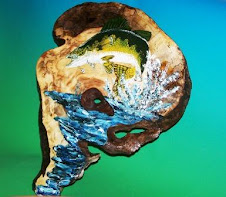Injured wildlife also requires specialized and immediate care to recover and return to the wild.
Signs of orphaning, injury or illness may include:
...Blood, wounds or swelling on the body
...Lethargy
...Body covered in fleas
...Unusual or uneven loss of fur or feathers
...Vocalizing and/or following humans around
...A fawn that is wandering around
...Contact with a domestic cat
...Difficult or raspy breathing or sneezing
...A dangling leg or wing
...Closed eyes
...Head tucked under wing
Orphaned Wildlife
It is normal for some species to leave their offspring temporarily alone, especially during the day.
For example, deer and cottontail rabbits spend much of the day away from their well-camouflaged offspring to minimize the chance of predators finding them.
To determine if young wildlife is truly orphaned:
▪ Check the animal periodically for 24 to 48 hours to see if it is still around, but keep your distance.
▪ Keep cats and dogs away from the area where the young animal is; the adult will not return if it is noisy or if predators or people are close by.
Care Necessary To Help The Animal
▪ If you find an injured, sick or orphaned wild animal, contact a wildlife custodian who can provide the specialized and immediate care necessary to help the animal.
▪ If you must handle it, seek the advice of a wildlife custodian to minimize risk of injury to yourself and to the animal.
▪ Wear protective clothing and equipment, such as leather gloves, to avoid bites or scratches, and wash hands well after handling the animal.
▪ Under the Fish and Wildlife Conservation Act, a person may only keep wildlife for 24 hours to transport it to a veterinarian for treatment or to a wildlife custodian for rehabilitation or care or to relocate it following capture as a problem animal.
Contact information:
▪ Ontario Wildlife Rehabilitation and Education Network (OWREN):
- call 905-735-9556, or
- contact info@owren-online.org
- visit www.owren-online.org
▪ Local Humane Society or local branch of the Ontario Society for the Prevention of Cruelty to Animals (SPCA):
- call 1-888-668-7722 or the Ontario SPCA Wildlife Rehabilitation Centre at 705-534-4350
- visit http://ontariospca.ca/.
Diseased or Dead Wildlife
▪ If you suspect there is a public health risk from a sick wild animal, such as rabies, or you or your pet had contact with a suspected rabid animal, contact your local Public Health Unit immediately.
▪ Rabies is fatal for humans and animals if not treated.
▪ Symptoms of rabies and several other diseases in animals can include tremors, aggressive behaviour, partial paralysis, convulsions, and loss of fear of humans.
▪ To report a dead crow, raven or blue jay, contact your local Public Health Unit.
▪ To report other dead animals or birds contact the Canadian Cooperative Wildlife Health Centre (http://www.inspection.gc.ca/english/toce.shtm).
Wild animals that have been live-trapped or acquired by other means must be released no further than one kilometre from the point of capture for adults and no further than 15 kilometres for juveniles (although not on private property without landowner’s permission) and within 24 hours.
Contact Information:
· Public Health Units:
o call 1-866-532-3161 between 8:30 a.m. and 5:00 p.m. Monday to Friday
o visit www.health.gov.on.ca/english/public/contact/phu/phuloc_mn.html for a list of offices.
· Canadian Cooperative Wildlife Health Centre:
o call 1-866-673-4781
o visit http://www.inspection.gc.ca/english/toce.shtml.
This information was provided by the Ontario Ministry of Natural Resources http://www.mnr.gov.on.ca/ and proudly sponsored by www.DistinctNorthernArt.com where you will find the most unique Canadian Wildlife Art.
.jpg)



.jpg)
No comments:
Post a Comment
Like it? Don't like it? Have another opinion? We value your comments.